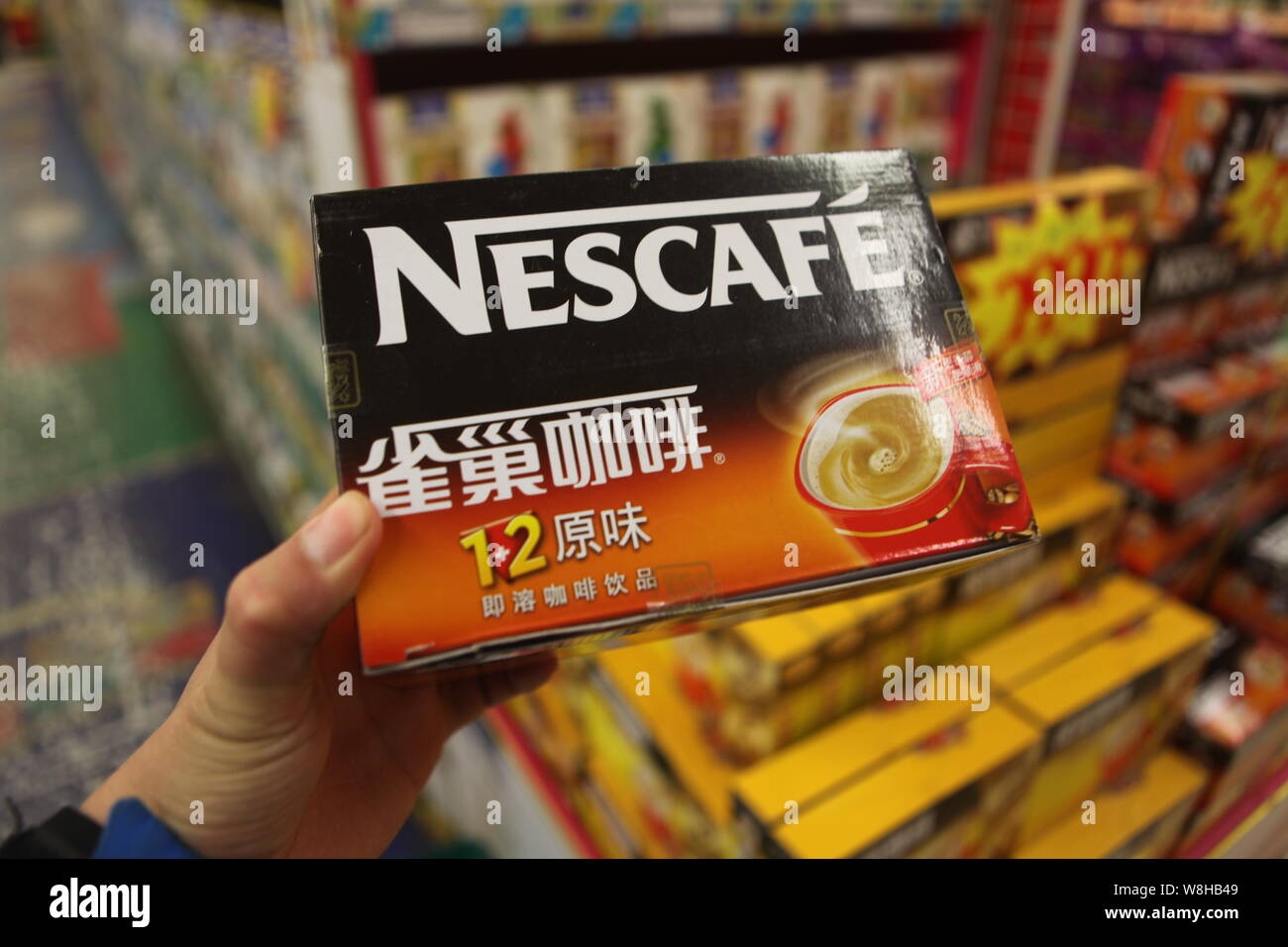--FILE--A customer buys a carton of Nescafe instant coffee of Nestle at a supermarket in Rizhao city, east Chinas Shandong province, 8 March 2014.

Image details
Contributor:
Imaginechina Limited / Alamy Stock PhotoImage ID:
W8HB49File size:
60.2 MB (934.5 KB Compressed download)Releases:
Model - no | Property - noDo I need a release?Dimensions:
5616 x 3744 px | 47.5 x 31.7 cm | 18.7 x 12.5 inches | 300dpiDate taken:
8 March 2014Photographer:
ImaginechinaMore information:
--FILE--A customer buys a carton of Nescafe instant coffee of Nestle at a supermarket in Rizhao city, east Chinas Shandong province, 8 March 2014. To trim its mounting inventory and stem losses from sluggish business, Nestle China's coffee factory in Dongguan, Guangdong province, has been incinerating instant coffee by the ton, burning up worth tens of millions of yuan since January, reports the China Business Journal. Even though the incinerated coffee still has six months of legitimate shelf life, Nestle wants to maintain a tighter level of freshness, said He Tong, PR superintendent of Nestle China. Nestle China has been struggling with sales in China for quite a while. The outdated products of Yinlu, a canned food manufacturer acquired by the conglomerate, as well as acute competition and a lack of innovation, are among the contributing factors, said the report. Sales of Nestle in emerging markets, including Asia, Oceania and Africa, inched up 2.6% to 18.3 billion Swiss francs (US$18.2 billion) in 2014, with operating profit reaching 18.7%, down 20 base points, according to official company data. Nestle attributed slowing growth to a lukewarm performance in the Chinese market and admits the need to adjust its product lineup in line with rapid changes in the demands of Chinese consumers, according to the report.